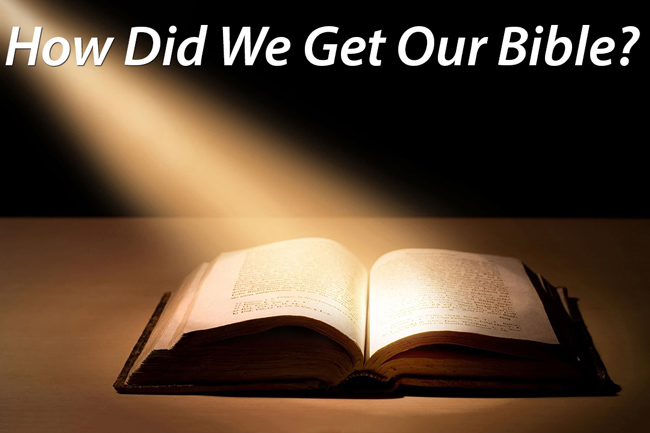The New Testament Canon (Part 4)

Last week we saw that the apostles taught that the authority given to them by Christ extended not only to their personal words and ministry but to their writings as well. This means that their writings take place alongside the writings of the Old Testament as God’s Word. Today we will look at how the New Testament writings were viewed by the early church.
In the providence of God, some very early writings of the church from just after the time of the New Testament have survived. These writings are often referred to as “The Apostolic Fathers” to refer to the fact that the writings are very early, and that many of the leaders writing them knew the apostles, or were only one generation removed from them. This includes leaders like Clement, Ignatius, and the writers of the text known as The Didache. When we look at these writings we find that they often quote the New Testament as authoritative.
For example in The Didache 1:2-3 we read: The way of life is this: “First, you shalt love the God who made thee, secondly, thy neighbor as thyself; and whatsoever thou wouldst not have done to thyself, do not thou to another.” 3. Now, the teaching of these words is this: “Bless those that curse you, and pray for your enemies, and fast for those that persecute you. For what credit is it to you if you love those that love you? Do not even the heathen do the same?” But, for your part, “love those that hate you,” and you will have no enemy. Notice that these two verses begin with quotes from the Old Testament (Deuteronomy 6:5; Leviticus 19:18 – which Jesus said were the two greatest commandments), and then include a string of quotes from the Gospels (Matthew 7:12; Luke 6:31; Luke 6:28). These are simply all quoted as the authoritative word of God. This writing is from before 150 AD, and may in fact be from before 100 AD. Similar examples could be produced from the letters of Ignatius (which were written around 110 AD) and 1 Clement (which was written around 95 AD).
From Justin Martyr, who was martyred in 165 AD, we get this description of the meetings of the churches in his day:
And on the day called Sunday, all who live in cities or in the country gather together to one place, and the memoirs of the apostles or the writings of the prophets are read, as long as time permits; then, when the reader has ceased, the president verbally instructs, and exhorts to the imitation of these good things. First Apology, 67.3 (written around 155 AD).
Notice that the early church met on Sunday morning for worship, and that they were taught the Scripture of the Old Testament or the writings of the Apostles. They received them as of equal authority.
From these things it is clear that the early church received, read, studied, and taught the writings we know as the New Testament to be the very Word of God, equal in stature and authority with the words of the Old Testament.
Next week we will look at the growth of heretical movements which produced their own writings – and thus the need for the church to clarify which writings were indeed inspired by God and therefore were part of the New Testament canon.
In Christ,
Bret
